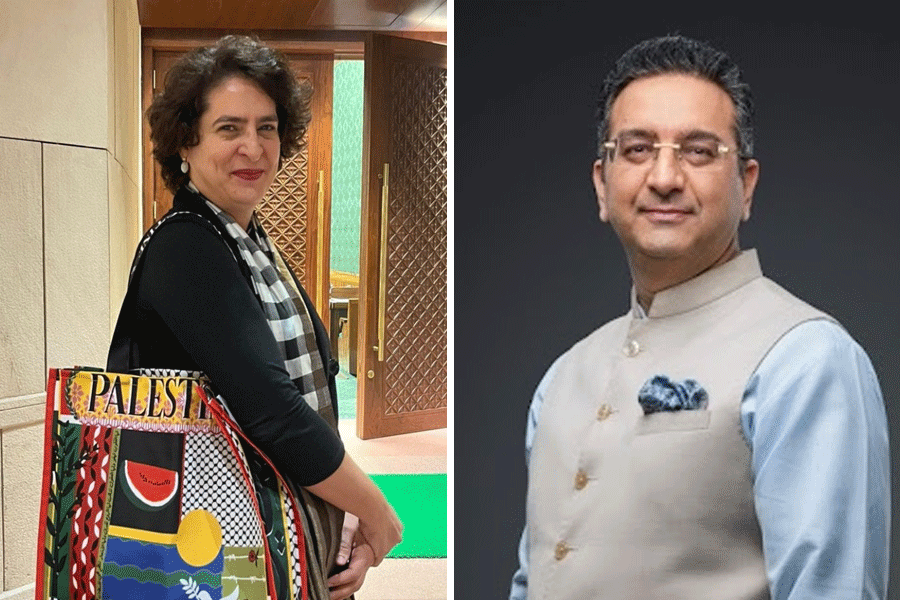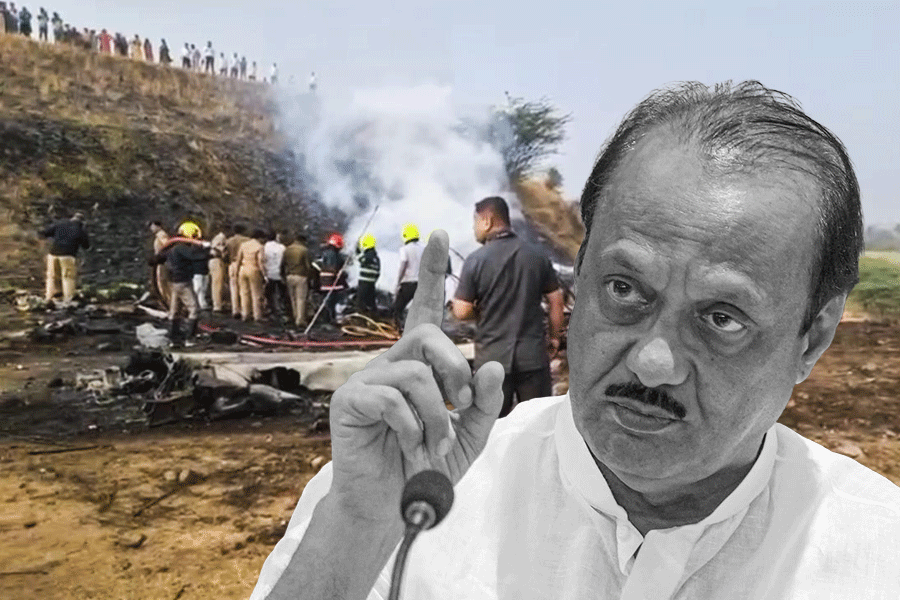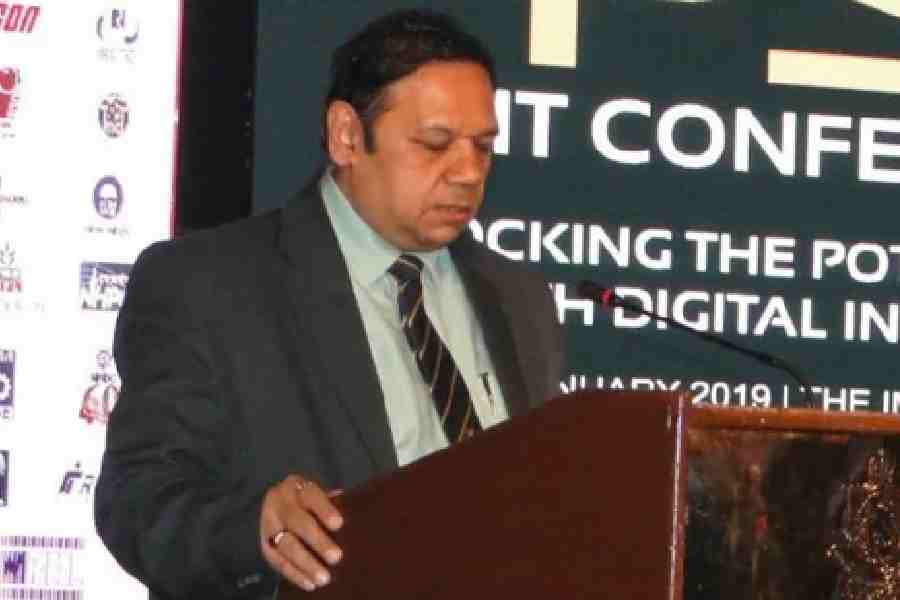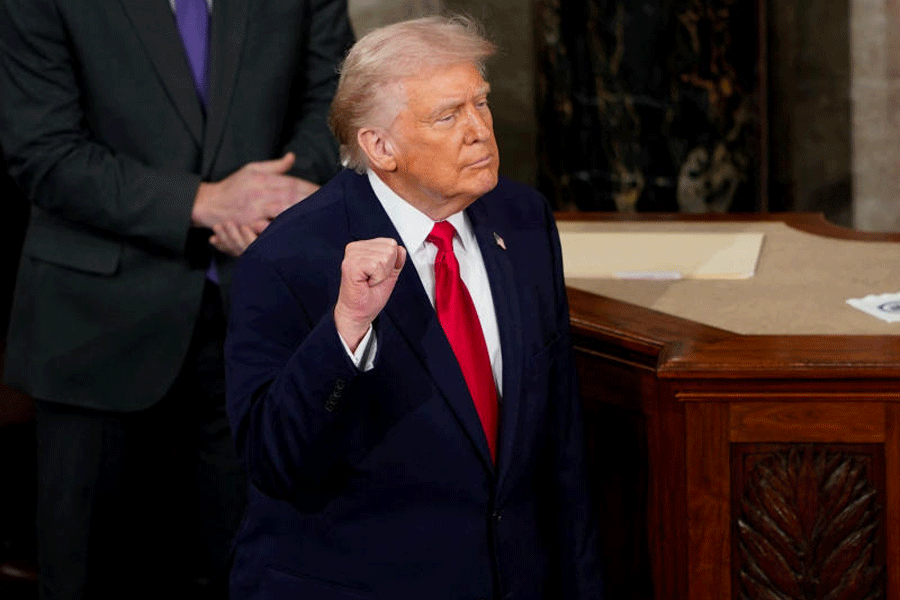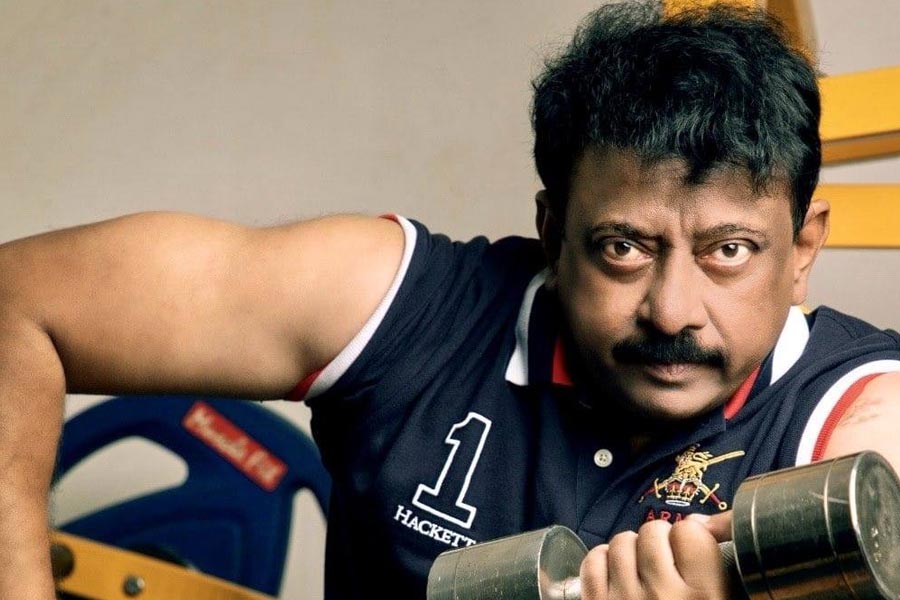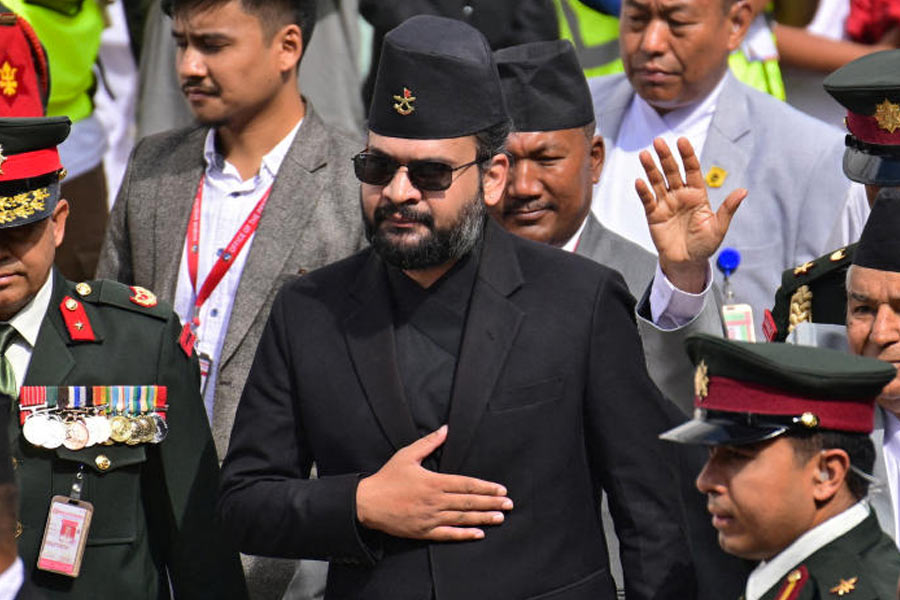 |
| A bag printed with Mao’s portrait on display at a Hong Kong shop. (AFP) |
Beijing, Sept. 7: Mao Zedong’s greatest fear was to be “buried twice”, like his Soviet counterpart Joseph Stalin, whose coffin was removed from Lenin’s tomb and shifted to an ordinary grave by his successor Nikita Khrushchev.
But that’s what’s happening to him, at least figuratively.
Exactly 30 years after the man many consider the father of modern China died on September 9, 1976, his legacy is being quietly overturned by a new generation of Chinese leaders and youths.
A new Chinese history textbook released last week barely mentions the Great Helmsman, and in the streets workers who once venerated Mao’s likeness now use it to hawk T-shirts and communist memorabilia.
“Very funny!” one such vendor proclaimed as he adjusted an imitation blue Mao hat a European tourist was trying on. “I also have Mao bags.”
Many Chinese youths are also avid fans of Mao kitsch, said Zhen Xi, 22, who collects records of the old Maoist-era songs that were the theme music of the communist revolution.
“One day I’ll set some to rap music”, said Zhen, the bulge of a MP3 player clearly visible under his oversized sweatshirt.
But he’d hardly be avant garde. Last year, the Communist Party itself commissioned a rap artiste to write a song using Mao’s favourite exhortation, the Two Musts — that people must preserve their modesty and their style of plain living and hard struggle — as part of a drive to recruit new youth members.
Mocking Mao would have been almost life-threatening during the lifetime of the leader, who ruled China through a unique combination of paternalism and fear.
“Every Saturday I’d sit around with leaders like Mao, Zhou Enlai and Zhu De to play gin rummy and we’d all laugh and tease each other,” said Sidney Rittenberg, 85, the one American who joined China’s Communist Party only to be jailed as a spy from 1968 to 1977. “But no one teased Mao.”
Today’s irreverence towards Mao might be a backlash, but it is also a natural fallout of the times, said Rittenberg.
“In Mao’s days party members were told ‘be first to endure and last to enjoy’,” he said. “Now, it’s the opposite. Young people seek money and power. There is no sense of vision, no values.”
But there is stability and economic growth and a certain transparency to things, said Qiu Chen, 20, a student at the Beijing Normal University .
“In the old days all kinds of things were said and people believed them. Only later did they see they were fooled.”
As a young revolutionary, Mao had been a willowy philosopher-king who had fought passionately to overturn China’s traditional feudalism. But as power entered his veins, be was intoxicated by it.
“Mao always said ‘I recognise no heaven and no law’,” said Rittenberg. “Before 1952, he had always espoused ‘new democracy’ and a mixed economy like India’s,” said Rittenberg. “But by (the time of) the Cultural Revolution (which started in 1966 and ended with Mao’s death in 1976) he was an absolute dictator.”
More than 40 million Chinese perished during Mao’s reign. But Zhen confessed that many young Chinese have only a hazy idea about all this. While the Communist Party, which still rules in Mao’s name, might have reached the point where it has dropped his name from textbooks, it has not reached the point where it allows much criticism of the erstwhile hero.
On October 1 last year, China’s National Day, authorities shut down an art exhibition at the Xin Dong Cheng Gallery for Contemporary Art in Beijing that featured Mao flirting with Marilyn Monroe, among other things.
Underground newspapers had a field day covering that story. “Mao-Munroe combine too hot to handle,” said one.
While all of this funny business is in some ways just harmless fodder for young Chinese, there’s no doubt that the new-found flippancy is indicative of a continuous desire for change here.
“I think our current leaders try to make it look like they are not for Mao,” said Yan, 24, a literature student in Beijing who asked not to be fully identified. “They want us to think they are not like Mao. But I don’t think so. They are like little Maos. And we are sick of them.”


